Motivated learners. meaningful outcomes.
Children with disabilities also deserve to be children and find joy and excitement in their learning experiences the way so many of their neurotypical peers do. Through a comprehensive assessment, EC-PBSL facilitators learn the learner to identify the most developmentally appropriate, functional, meaningful, and relevant social goals for that individual. By using the results of the assessment, facilitators are able to prioritize their time and efforts to target only the most socially significant goals, leading to the most meaningful outcomes for the individual learner being supported.
Mission Cognition’s Early Childhood Play Based Social Learning Program (EC-PBSL) is designed for preschool-2nd grade students with and without disabilities. The program emphasizes research based direct Instruction and play-based learning, while following learner motivation, embedding interests and preferences, and implementing evidence-based strategies to promote generalization of targeted social skills to the natural environment.
WHY EC-PBSL?
Early Childhood – Play Based Social Learning Program
As parents and educators, we understand the importance of helping children develop strong social emotional skills from an early age. These skills not only promote healthy relationships, but also foster better academic performance and overall well-being.
While there are an increasing number of social emotional learning programs on the market, most are geared toward a neurotypical population and as such, lack critical components to best meet the needs of a neurodivergent population. Learners with specialized educational needs benefit from explicit and systemmatic instruction with multiple opportunities to practice skills in the context of naturally occuring situations, to increase not only the rate of acquisition, but also the generalization of those skills to other people, settings, and situations.



What’s inside?
The program targets more than 150 skills across 15 domains critical for social, emotional, behavioral wellness. Each domain area is broken down into component skills which are explicitly and systematically targeted for intervention and instruction within a series of core activities. Each core activity is directly aligned with specified social domain target areas and facilitated in a way that embeds instruction, practice and reinforcement of selected component skills within the context of play and learning.
Core ACtivities
Core activities are designed to simulate games and learning activities the learner would come in contact with in the natural environment. This supports the probability of generalization, but also allows for more naturalistic intervention and instruction within a range of therapeutic and educational settings including clinics and classrooms.
This social emotional learning program is comprised of 58 + units which are theme based and may be completed 1 per day or extended over the course of an entire week if you are planning to implement in a program which provides daily instruction. Themes are based on stories to further establish and embrace the relationship between language, literacy, play and social behaviors. Learners may continue to utilize and benefit from the program for years, as each core activity within the units allows for high levels of differentiation. This means that the learner may come in contact with the same activity each year as that theme comes up, but the way in which it is facilitated and the way in which they engage differs as their skills and interests continue to develop and change.





Assessment & Facilitator Training
Assessment & Facilitator training is embedded in the online EC-PBSL Portal

- Component Skills Checklist from Mission Cognition’s Social Interaction-Global Focus Area (SI-GFA) assessment package is included
- The SI-GFA component skills checklist assesses 15 play and social skills domains with a total of 125 component skills.
- Assessment informs the identification of the most developmentally appropriate & socially significant skill target areas.
Evidence-Based PracticeS
- Task Analysis
- Visual Supports
- Modeling
- Prompt & Prompt Fading
- Social Narratives
- Behavioral Skills Training (BST)
- Functional Communication Training (FCT)
- Natural Environment Teaching (NET)
- Embedded Discrete Trials (EDT)
- Antecedent Based Interventions
- Reinforcement
- Differentiation & Scaffolding
- Active Student Responding
- Direct Instruction
- How to conduct initial and ongoing assessments.
- How to write comprehensive, socially significant individualized, specific, and measurable social, emotional, learning goals.
- How to cultivate a developmentally appropriate, enriched, and engaging learning environment focused on social growth and development.
- How to selecting core activities to develop a customized structure and routine for your clients or students based on their priority areas for social growth.
- How to identify and implement strategies for differentiating structure, implementation, and facilitation across 3 developmental levels. (Learner Profiles A: early/emerging, B: Intermediate, C: Nuanced)
- How to collect and analyze data, make data driven decisions, and report progress.
Targeted Social Domains
Mission Cognition Global Focus areas
A. Early Social Responding
B. Social Motivation, Initiation & Reciprocity
C. Toy Play & Leisure
D. Social Play
E. Group Learning
F. Adaptability & Flexibility
G. Self Regulation & Managing Emotions
H. Nonverbal Communication
I. Cooperation & Teamwork
J. Sportmanship
K. Speaking & Listening
L. Perspective Taking
M. Social Conflict Resolution
N. Friendships & Relationships
O. Self Advocacy
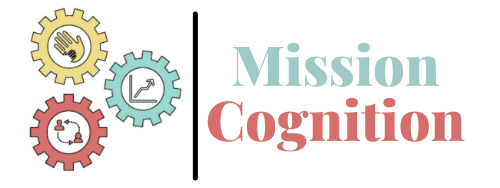
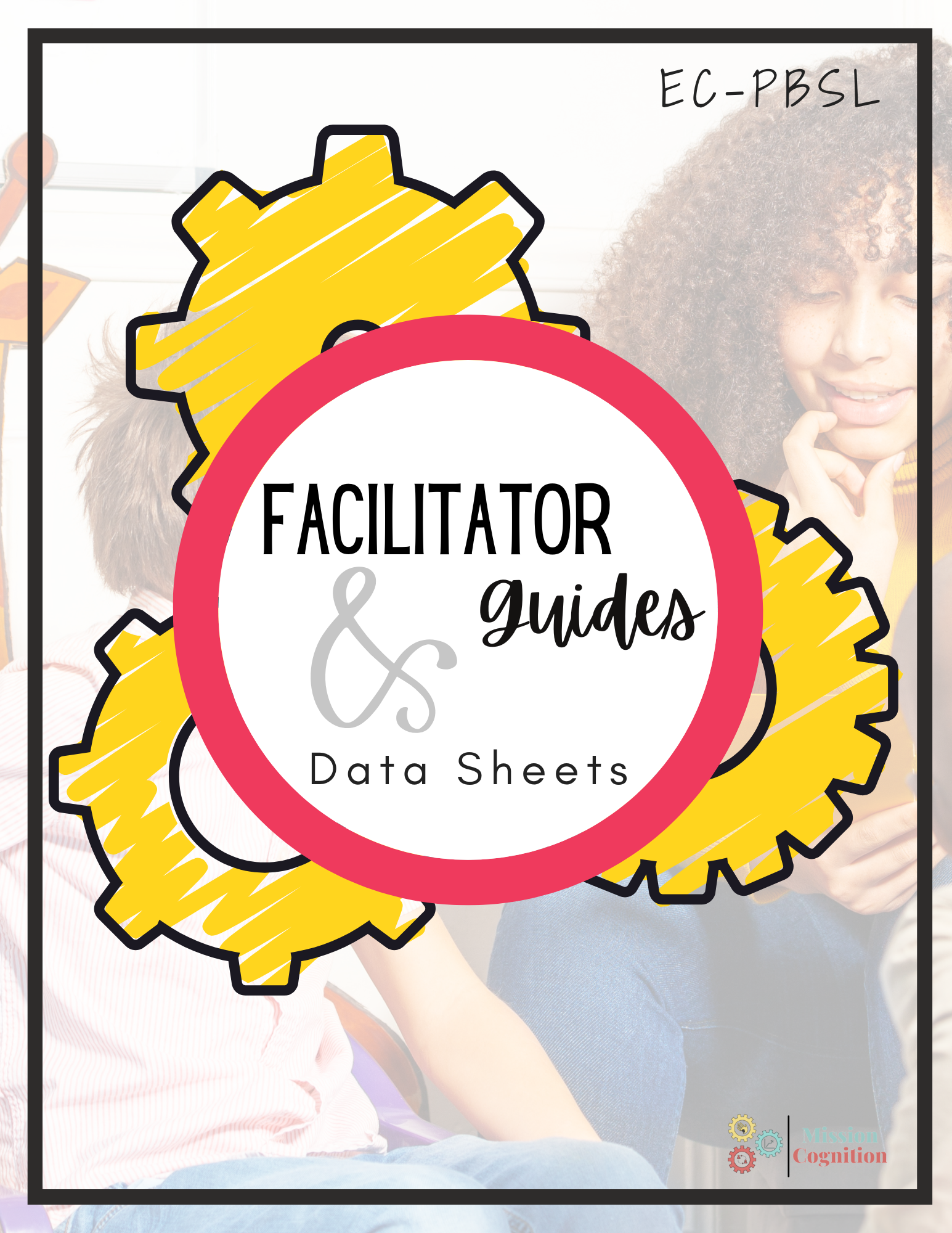
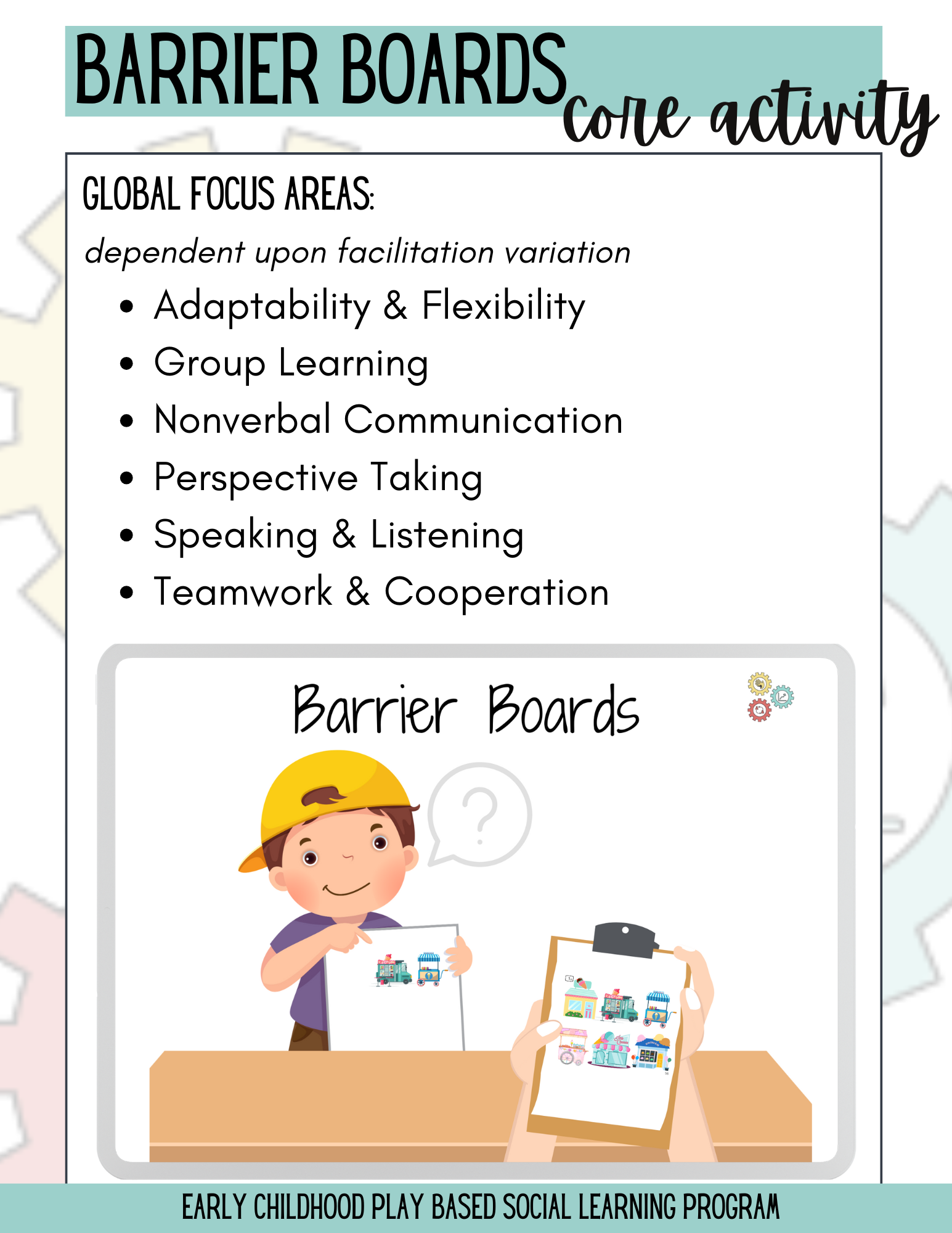
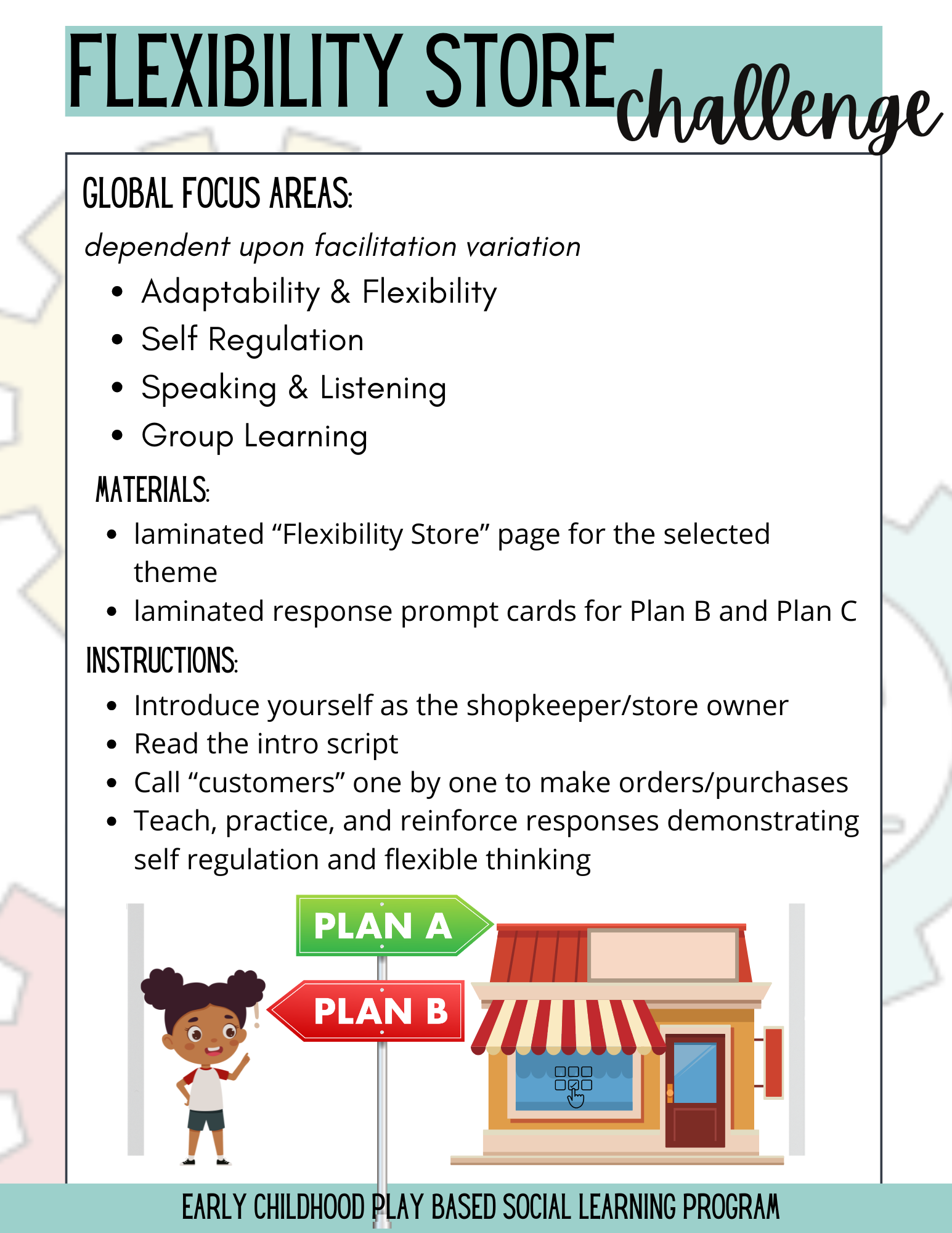
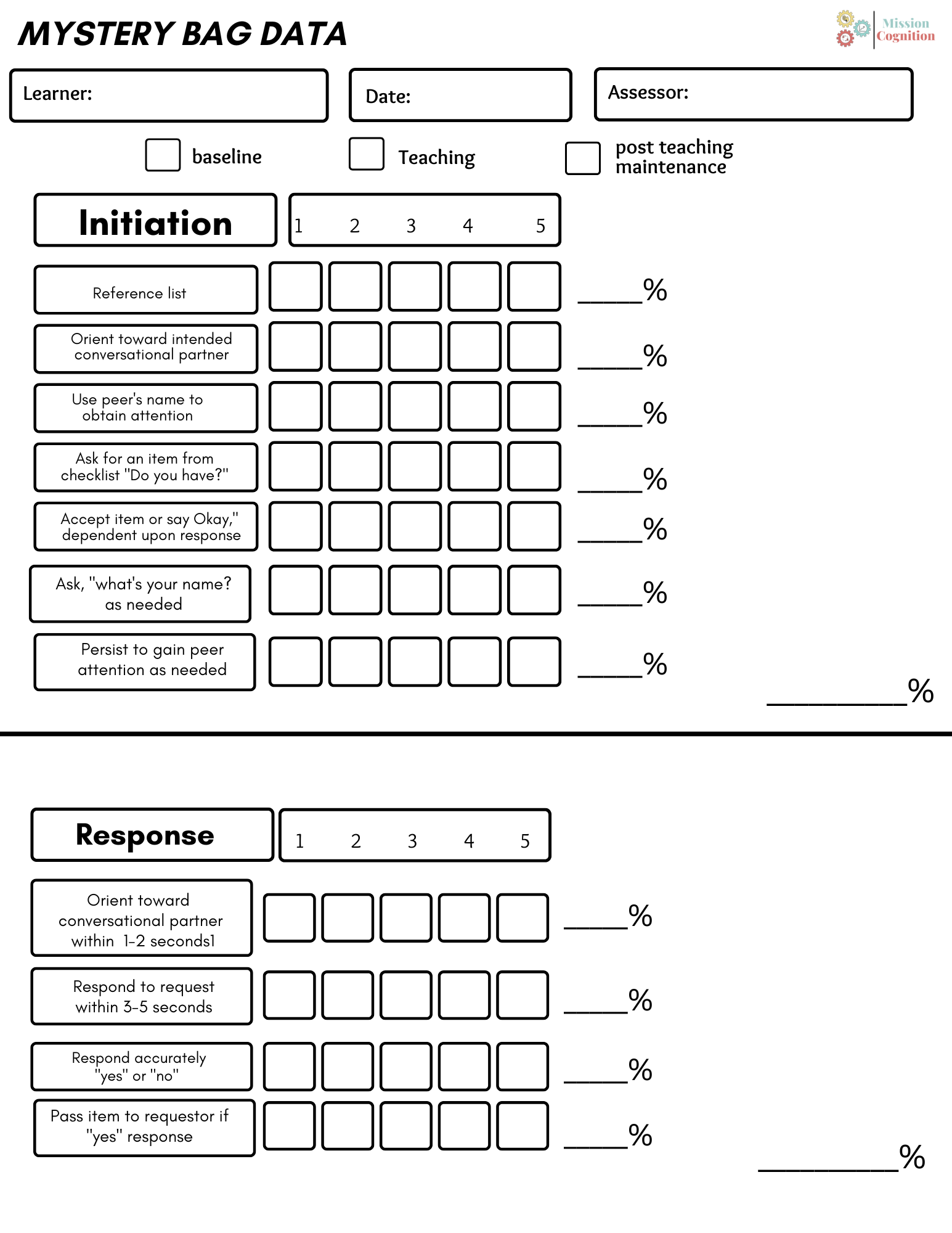
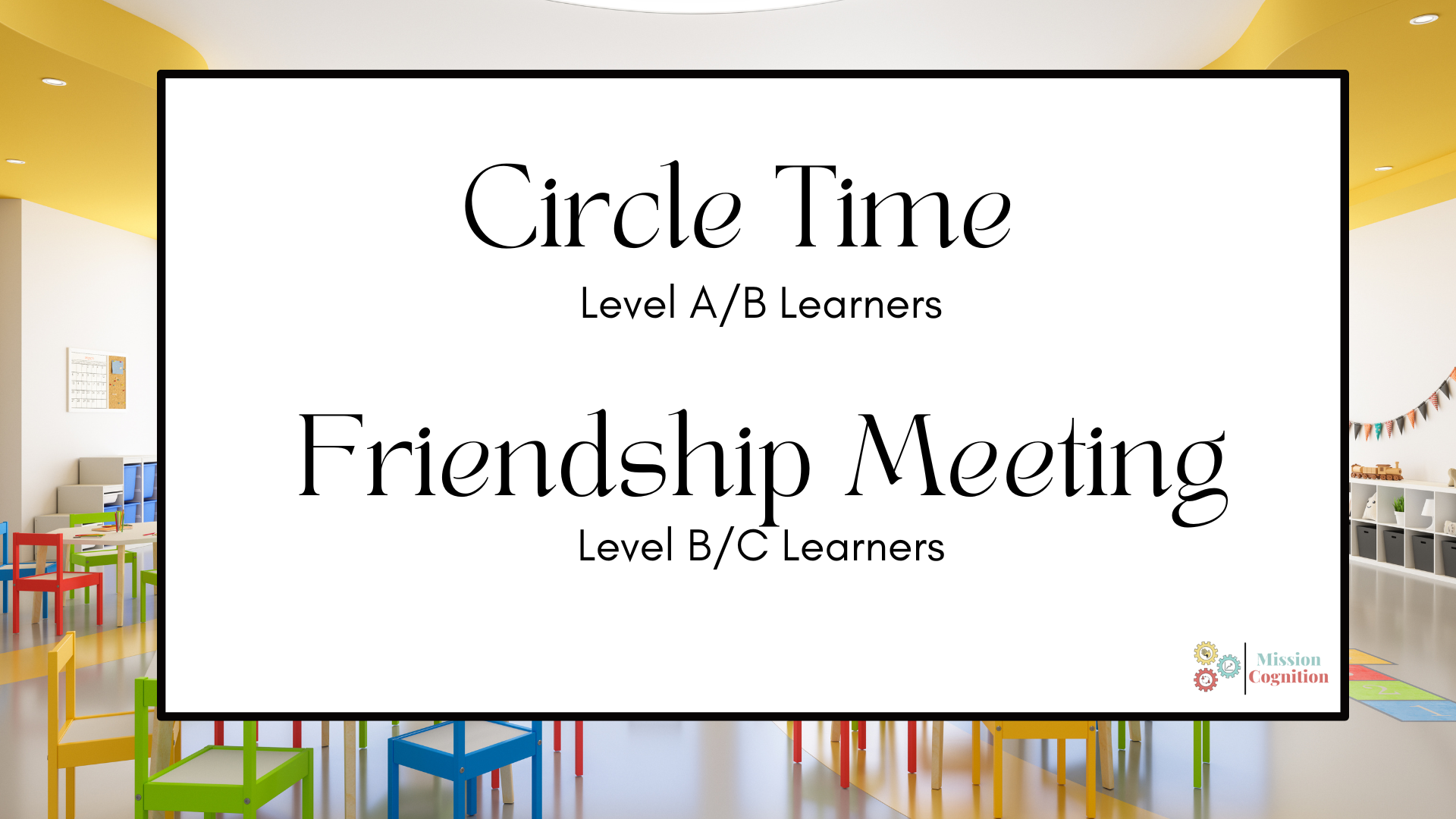
![[Original size] PBSL Informational Packet](https://missioncognition.com/wp-content/uploads/2023/03/Original-size-PBSL-Informational-Packet.png)